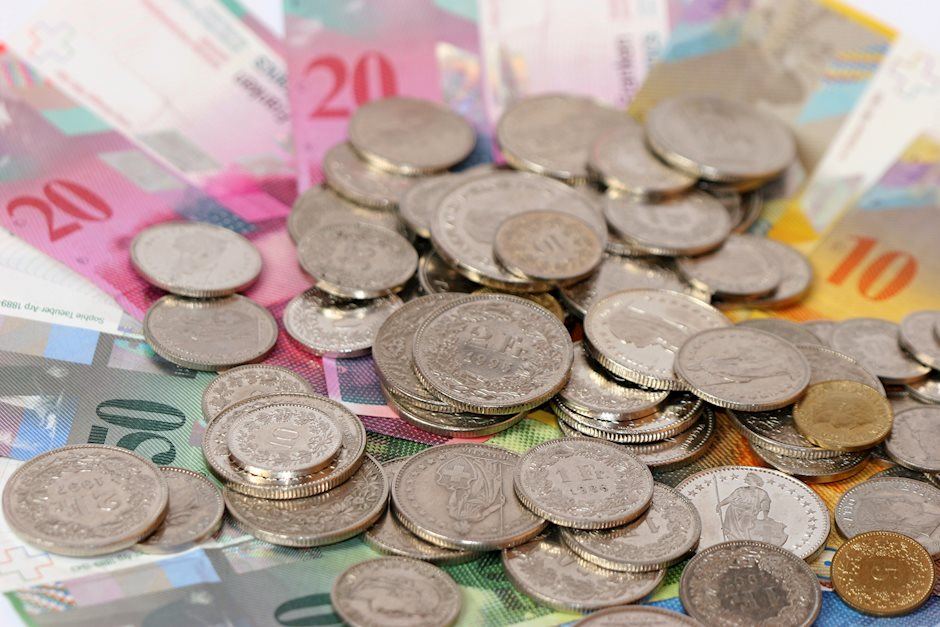USD/CHF retreats from multi-month top, still well bid above 0.8700 amid bullish USD
- USD/CHF jumps to a three-month peak on Wednesday amid broad-based USD strength.
- The Trump trade, smaller Fed rate cut bets and surging US bond yields benefit the buck.
- The risk-on mood undermines the safe-haven CHF and further lends support to the pair.

The USD/CHF pair catches aggressive bids on Wednesday and spikes to its highest level since early August, around the 0.8755 region during the Asian session. Spot prices, however, retreat a few pips in the last hour and currently trade just above the 0.8700 mark, still up 0.90% for the day.
The US Dollar (USD) strengthens across the board and spikes to over a four-month peak in reaction to initial US election exit polls, which indicated an early lead for former President Donald Trump in key swing states. Meanwhile, the Trump optimism triggers a fresh wave of risk-on trade across the global equity markets and undermines the safe-haven Swiss Franc, which, in turn, provides an additional boost to the USD/CHF pair.
Meanwhile, speculations that a Republican sweep could see the launch of Trump's potentially inflation-generating tariffs, along with deficit-spending concerns and bets for a less aggressive easing by the Federal Reserve (Fed), continue to push the US bond yields higher. In fact, the yield on the benchmark 10-year US government bond surges over 15 points at 4.44%, hitting its highest level since July 2 and favors the USD bulls.
That said, expectations for a further spike in volatility across the financial markets act as a headwind for the buck and hold back traders from positioning for any further appreciating move for the USD/CHF pair. Nevertheless, the fundamental backdrop suggests that the path of least resistance for spot prices remains to the upside. Hence, any subsequent decline might still be seen as a buying opportunity and remain limited.
Swiss Franc FAQs
The Swiss Franc (CHF) is Switzerland’s official currency. It is among the top ten most traded currencies globally, reaching volumes that well exceed the size of the Swiss economy. Its value is determined by the broad market sentiment, the country’s economic health or action taken by the Swiss National Bank (SNB), among other factors. Between 2011 and 2015, the Swiss Franc was pegged to the Euro (EUR). The peg was abruptly removed, resulting in a more than 20% increase in the Franc’s value, causing a turmoil in markets. Even though the peg isn’t in force anymore, CHF fortunes tend to be highly correlated with the Euro ones due to the high dependency of the Swiss economy on the neighboring Eurozone.
The Swiss Franc (CHF) is considered a safe-haven asset, or a currency that investors tend to buy in times of market stress. This is due to the perceived status of Switzerland in the world: a stable economy, a strong export sector, big central bank reserves or a longstanding political stance towards neutrality in global conflicts make the country’s currency a good choice for investors fleeing from risks. Turbulent times are likely to strengthen CHF value against other currencies that are seen as more risky to invest in.
The Swiss National Bank (SNB) meets four times a year – once every quarter, less than other major central banks – to decide on monetary policy. The bank aims for an annual inflation rate of less than 2%. When inflation is above target or forecasted to be above target in the foreseeable future, the bank will attempt to tame price growth by raising its policy rate. Higher interest rates are generally positive for the Swiss Franc (CHF) as they lead to higher yields, making the country a more attractive place for investors. On the contrary, lower interest rates tend to weaken CHF.
Macroeconomic data releases in Switzerland are key to assessing the state of the economy and can impact the Swiss Franc’s (CHF) valuation. The Swiss economy is broadly stable, but any sudden change in economic growth, inflation, current account or the central bank’s currency reserves have the potential to trigger moves in CHF. Generally, high economic growth, low unemployment and high confidence are good for CHF. Conversely, if economic data points to weakening momentum, CHF is likely to depreciate.
As a small and open economy, Switzerland is heavily dependent on the health of the neighboring Eurozone economies. The broader European Union is Switzerland’s main economic partner and a key political ally, so macroeconomic and monetary policy stability in the Eurozone is essential for Switzerland and, thus, for the Swiss Franc (CHF). With such dependency, some models suggest that the correlation between the fortunes of the Euro (EUR) and the CHF is more than 90%, or close to perfect.
Author

Haresh Menghani
FXStreet
Haresh Menghani is a detail-oriented professional with 10+ years of extensive experience in analysing the global financial markets.

















